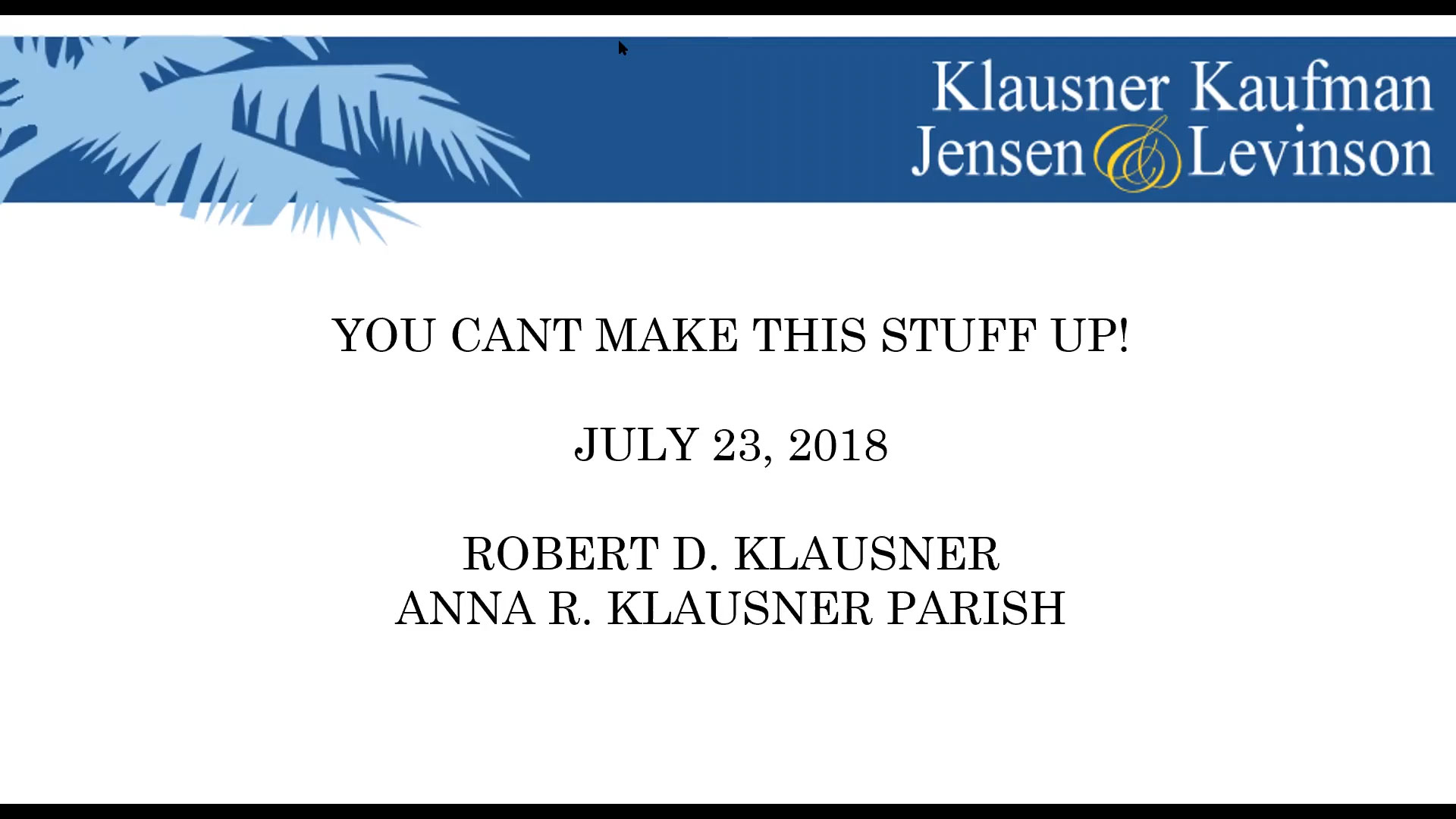Summer 2014
by Robert D. Klausner
In a pair of very recent decisions arising from forced pension reform in New Jersey, courts render one decision favorable to retirees while rejecting a claim for immediate funding in the other.
In Berg v. Christie, 2014 WL 2883872 (N. J. Super. A. D. 6/26/2014), the New Jersey Superior Court Appellate Division considered a claim by retired public employees and labor organizations seeking a declaration that the statute suspending COLAs was unconstitutional. Specifically, the plaintiffs claimed that a 2011 law suspending COLAs until the funding of the retirement systems improved was invalid. At the same time, as the Legislature approved an additional funding measure to help retire the unfunded liability, the Governor issued an Executive Order reducing the state contribution by $1. 3 billion.
Despite that continued failure to fund the systems, the evidence showed that COLAs could be paid for approximately the next 30 years without the additional funding. As a result, no specific appropriation was necessary to fund the COLAs. In light of that finding the Court rejected arguments by the State that the claims of plaintiffs were barred by the debt and appropriation clauses of the New Jersey Constitution. The Court appears to have left this question open, however, if proper funding is not eventually restored.
The Appeals Court also found that the COLA was like any other retirement benefit and was constitutionally and statutorily protected against impairment as a non-forfeitable contract right set forth in state law. The ability of the Legislature to amend the pension acts did not include the right to eliminate COLAs already vested in the participants.
The members had also challenged the law on the basis that it impaired the obligation of contract. Unlike breach of contract suits, impairment cases maybe defended on a public welfare basis. As the trial court failed to address this balancing test the case was remanded back to the trial court for further proceedings. In closing, the Court admonished the political branches of the government to have the “political will to preserve the systems and satisfy prior commitments made to public employees and retirees. ”
In a related case, a New Jersey trial judge declined to issue a preliminary injunction relating to the Executive Order to reduce funding in fiscal 2014 or to prevent a veto of additional funding and the tax legislation supporting it in fiscal 2015. In Burgos v. State, Superior Court Mercer County Law Division, Docket No. L-1267-14 (6/25/2014), the Court considered a request by a group of public employees and unions to issue a preliminary injunction preventing the execution of the Governor’s executive order cutting retirement funding. The Governor similarly amended the budget proposal for fiscal 2015 to also prevent payment of the full actuarially-required contribution. New Jersey has failed to pay its full ARC since 1997. Reform legislation sponsored by the Governor in 2010 and 2011 was supposed to phase in full funding over a 7-year period.
The Court found that it had both a duty and jurisdiction to hear the challenge. As a result, the Court rejected the idea that separation of powers prevented the Court from hearing the matter. The Court did find that the members’ claims concerning fiscal 2015 were premature. At the time of the decision, the budget had not been adopted. The Court declined to speculate on the results of that process.
The Court also rejected a request for a preliminary injunction. Generally, to warrant an injunction, the harm suffered must be irreparable. Generally, monetary damages do not form a basis for irreparable harm. In the end, the Court was unwilling to substitute its judgment for that of the Executive Branch as to how to deal with a fiscal emergency situation in the closing weeks of the budget year. It is unknown at the time this article is written whether the Plaintiffs will appeal or file an amended complaint.
What is certain, is that New Jersey’s pension story has yet to see the final chapter written on the duty to fund the systems on a sound actuarial basis.
Link: Download
